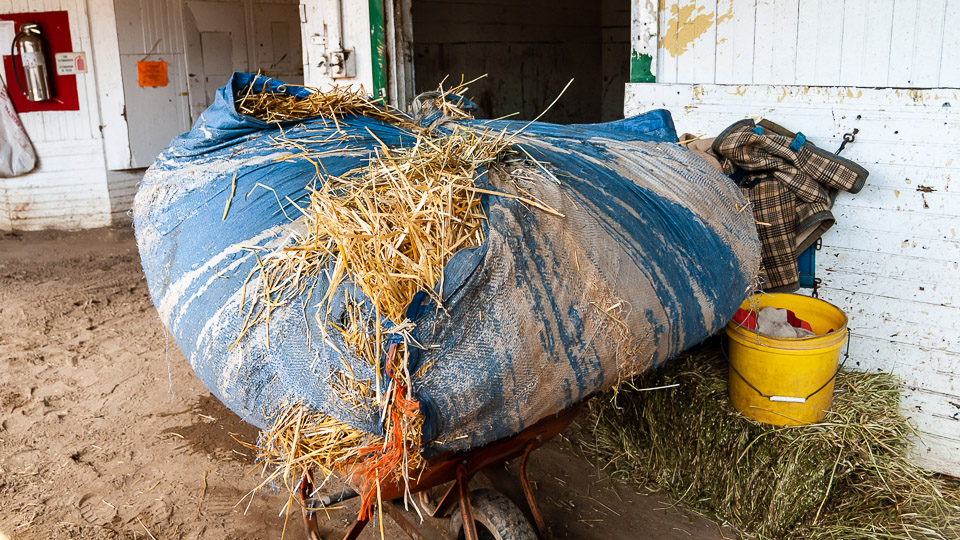
Horse Farm Waste Management – An Introduction
This is an important area of horse ownership. I attended a seminar a long time ago that discussed this very topic at Cornell University with speakers from around the globe. With all the new technology it still boiled down to removing the waste from the stall and shipping it out of the barn to a place far, far away from the horses.
If a horse can make 50 or more pounds (23kg) of manure and urine soaked bedding a day, accumulating this for 30 days equals 1500 lb (682kg) in a pile. Even if you don’t keep your horse in a stall or shed, the pasture will still have this much. It all needs to go somewhere other than remain in the stall or on the ground where they eat.
Waste management therefore is one of the most important subjects to discuss when owning or managing a horse farm.
Use the browser back button or menu to return to the index of topics.
Horse Farm Waste Management – Cleaning
Where ever horses are, poop and urine happen. Daily. It is the most basic of horse care to clean the areas where they spend time, yet some people skimp on this needed process.
There are several reasons for cleaning up horse waste but for me, the number one reason is because it is the right thing to do. No one wants to live in their own waste. It is necessary to define what “clean” is. Unfortunately for many this definition is controlled by the amount of money a person wants to spend on labor and bedding. This doesn’t place the horse as the most important reason for cleaning and that needs to be placed above money and time. If you own horses you need to remove all soiled bedding and waste at least once a day.
Horse Farm Waste Management – Composting
Composting of horse waste is done on several farms I visit. This has several benefits that are discussed here with pictures of some set ups on a few farms.
Horse Farm Waste Management – Containers
Containment of horse waste is needed where it will be hauled away in the future. Many keep it in a trailer or a manure spreader where once or twice a week it is emptied. Waste containment is important and in some areas are required to meet strict standards. Some are portable containers and others are permanent areas that are periodically emptied.
Horse Farm Waste Management – Spreading
There is one rule when spreading horse waste. Avoid spreading it on a pasture where horses live. This is not sanitary and encourage the spread of parasites. It is true that periods of dry heat will kill the larvae but few areas lack rain or dew. It will also attract flies to the decaying matter and who wants that.
Horse Farm Waste Management – Vacuums
The first time I heard of a manure vacuum was when it was used in a study about parasite control. It was driven off of a PTO drive shaft from a tractor. Since then there are a few companies making gas powered self contained vacuums that can be pulled by any vehicle.


Responses